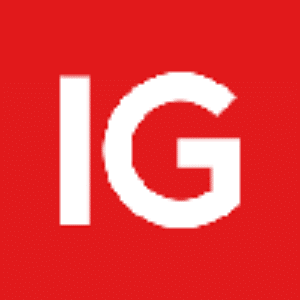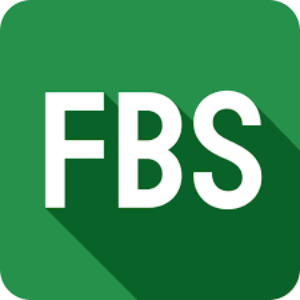
Forex trading in Germany has gained popularity as more people seek to engage in global financial markets. When choosing a forex broker, it’s crucial to find a regulated broker that offers competitive trading costs and effective customer support. This ensures a safer and more efficient trading experience. With a variety of brokers available, knowing which ones rank as the best can help both beginners and experienced traders make informed decisions.
In this article, I will explore the top forex brokers in Germany, focusing on their unique features, trading platforms, and customer service. I will provide insights into their regulatory status and any potential costs associated with trading. Understanding these factors can significantly influence your trading success.
| Broker | Trading Platforms | Best For | Notable Aspects |
|---|---|---|---|
| Deutsche Bank AG (dbFX) | Advanced Trading Technology | Serious Forex Traders | German Banking Giant with comprehensive forex services, wide range of currency pairs, and robust financial backing |
| Comdirect Bank | Reliable Trading Platform | Beginners & Experienced Traders | Part of Commerzbank with user-friendly interface, competitive spreads, and efficient customer service |
| Dukascopy Europe | Swiss Foreign Exchange Marketplace | Security-Focused Traders | Headquartered in Latvia but serves German traders with low spreads, high leverage options, and strong data security |
| IG Markets | Robust Analytics Platform | New Traders | Access to 80+ currency pairs, low spreads, and strong focus on educational resources and professional tools |
| Saxo Bank | Comprehensive Professional Platform | Experienced Traders | Leading player in online trading with vast currency pair selection, high-level customer service, and competitive pricing |
Note: All brokers are regulated by BaFin (Federal Financial Supervisory Authority) in Germany, providing robust investor protection.
Regulation and Investor Protection

In Germany, the regulation of forex brokers is overseen mainly by BaFin, the Federal Financial Supervisory Authority. This ensures a secure trading environment for investors. Understanding the key regulations and investor protection measures is essential for traders looking for a reliable forex broker.
Overview of BaFin and Regulatory Compliance
BaFin plays a crucial role in overseeing forex brokers in Germany. As the regulatory authority, it ensures that brokers comply with strict guidelines. This includes requirements for transparency, reporting, and financial health.
All regulated forex brokers must hold a license from BaFin. This guarantees they adhere to European Union regulations, offering robust investor protection. Brokers are also required to keep client funds in separate accounts, minimizing the risk of loss.
BaFin implements measures like Negative Balance Protection. This means that even in volatile markets, traders won’t lose more money than they deposit. The authority also collaborates with Deutsche Bundesbank to combat money laundering, ensuring the financial system remains secure.
Ensuring Safety with Regulatory Licenses
When looking for a forex broker, checking their regulatory status is vital. A regulated broker offers safeguards like compensation schemes in case of insolvency. In Germany, insurance coverage through the Entschädigungseinrichtung der Wertpapierhandelsunternehmen (EdW) protects clients’ funds up to €20,000.
Brokers licensed by BaFin must also comply with EU directives, which enhance investor safety across the European Economic Area. This is similar to regulations by the UK’s Financial Conduct Authority and Cyprus’s CySEC, which also promote fairness and security in trading practices.
Understanding these regulations helps traders make informed decisions. It supports a safer trading environment, ensuring that investors’ interests are prioritized in every transaction.
5 Best Forex Brokers in Germany
- Deutsche Bank AG – dbFX: This German banking giant offers a comprehensive forex trading platform with access to a wide range of currency pairs. Known for its stability, robust financial backing, and advanced trading technology, dbFX is a top choice for serious forex traders in Germany.
- Comdirect Bank: A part of Commerzbank, Comdirect offers a user-friendly trading environment with competitive spreads and a wide array of trading tools. It’s ideal for beginners and experienced traders who appreciate efficient customer service and a reliable trading platform.
- Dukascopy Europe: Although headquartered in Latvia, Dukascopy provides excellent services to German traders, including access to the Swiss Foreign Exchange Marketplace. It offers low spreads, high leverage options, and a strong emphasis on data security and transparency.
- IG Markets: IG offers a robust trading platform with access to over 80 currency pairs, professional analytics tools, and low spreads. It’s particularly favored for its educational resources, making it a great option for new traders.
- Saxo Bank: A leading player in the online trading world, Saxo Bank offers a comprehensive and professional platform with access to a vast range of currency pairs. Its high level of customer service, advanced trading tools, and competitive pricing structures make it a preferred choice for experienced traders.
Comparing Trading Platforms and Tools

When assessing the best forex brokers in Germany, it’s essential to compare their trading platforms and tools. This comparison will help you understand which features and functionalities can enhance your trading experience.
Popular Platforms: MetaTrader 4, cTrader, and More
MetaTrader 4 (MT4) is one of the most popular trading platforms among forex brokers. It offers a user-friendly interface and advanced charting tools, making it ideal for both beginners and experienced traders. With MT4, I can execute trades quickly and utilize automated trading strategies, known as Expert Advisors.
cTrader is another popular choice. It provides advanced order types and superior charting options. This platform allows for faster execution speeds, which can be crucial in the fast-paced forex market. Additionally, MT5, the successor to MT4, offers improved features, including more timeframes and a built-in economic calendar.
Other platforms, like TradingView, focus on social trading aspects. They allow me to view market analysis from other traders and share insights, enhancing collaborative learning.
Innovative Features and Mobile Trading Capabilities
Innovative tools enhance the trading experience significantly. Many forex brokers provide mobile trading apps, allowing me to trade on the go. These apps typically feature essential functions, like real-time market data, seamless order execution, and account management tools.
Demo accounts are a crucial feature for beginners. They let me practice trading without risking real money. This practice can help me understand the platform better and refine my trading strategies. Some brokers also offer advanced trading tools like algorithmic trading options.
Moreover, competitive spreads and leveraging options vary by platform and broker. Choosing the right combination of these features impacts my trading style and can affect potential profitability. Overall, it’s essential to evaluate these platforms carefully to find the best match for my trading needs.
Account Types and Trading Costs

When exploring the best forex brokers in Germany, it is essential to understand the different account types available, as well as the related trading costs. Each account type can affect spreads, commissions, and leverage, which are critical for your trading strategy.
Understanding Spreads, Commissions, and Leverage
Spreads are the difference between the buying and selling prices of currency pairs. Most brokers offer competitive spreads, which can be fixed or variable. Fixed spreads remain constant, while variable ones can change with market conditions.
Commissions may apply depending on the broker and account type. Some brokers charge a fee per trade, while others use spreads as their main source of income. Low trading fees are appealing, but it’s crucial to consider the quality of execution speed alongside these fees.
Leverage allows traders to control larger positions with a smaller amount of capital. Many brokers offer leverage ratios, often as high as 1:30 or more, which amplifies both potential profits and risks. This can lead to significant gains but also poses a high risk of losing money quickly.
Comparing Account Options: Classic Vs. Raw Accounts
When choosing an account type, I find that Classic Accounts and Raw Accounts have distinct features. Classic Accounts typically offer lower minimum deposits and simple fee structures. They might have wider spreads but no additional commissions.
In contrast, Raw Accounts provide tight spreads but often come with a commission for each trade. This format can be more favorable for active traders, as lower spreads can reduce overall trading costs. Additionally, some brokers may charge inactivity fees on accounts that remain dormant for extended periods.
Ultimately, the choice between account types depends on my trading style, capital, and desired level of risk exposure. I recommend carefully reviewing each broker’s account options to find one that aligns with my trading goals.
Financial Instruments and Markets

In today’s financial landscape, understanding the instruments and markets available is crucial for any trader. The forex market offers a wide range of options, including currencies, CFDs, and cryptocurrencies, which can be tailored to various trading strategies and risk appetites. I’ll discuss key instruments and index offerings that enhance trading opportunities in Germany.
Diverse Portfolio Options: Forex, CFDs, and Cryptocurrencies
I find that having a diverse portfolio is essential for managing risk and maximizing returns. In Germany, forex brokers provide access to numerous currency pairs, allowing traders to exchange one currency for another, like the euro against the US dollar.
Contracts for difference (CFDs) are another popular option. They enable traders to speculate on price movements of assets without owning them directly. This includes commodities like gold and crude oil.
Cryptocurrencies also have made a significant impact. Brokers often offer crypto CFDs, allowing traders to access markets for Bitcoin, Ethereum, and others without needing a digital wallet. This flexibility helps me to take advantage of different market trends and volatility.
Assessing Tradable Instruments and Index Offerings
When choosing a broker, I carefully assess the range of tradable instruments available. Many top forex brokers in Germany offer not only forex currency pairs but also commodities, indices, and derivatives.
I look for brokers that provide competitive spreads, which can significantly influence profitability, especially for frequent traders. Furthermore, indexes like the DAX provide additional opportunities to diversify my trades.
Understanding these instruments allows me to construct well-rounded trading strategies. Utilizing various financial products, such as options and futures, also enhances my ability to hedge risks effectively. A well-informed selection of instruments is key to achieving trading success in the dynamic environment of forex markets.
Broker Support and Customer Experience

The quality of broker support and customer experience can greatly influence my trading success. It’s essential to assess how brokers like FP Markets and Pepperstone provide assistance. Understanding available educational resources and account management options can also enhance my trading journey.
Evaluating Customer Support and Educational Resources
Effective customer support is crucial when navigating the forex market. I look for brokers that offer multiple contact options like live chat, email, and phone support. Companies such as XTB and IG Markets typically have high Trustpilot scores, reflecting reliability in customer service.
Educational resources also play a vital role. Many brokers provide webinars, tutorials, and articles to help me improve my trading skills. For instance, platforms like AvaTrade and Fusion Markets offer comprehensive educational content that suits both beginners and experienced traders. Having access to quality information increases my confidence in making informed trading decisions.
Utilizing Copy Trading and Account Management Features
Copy trading is an innovative feature that allows me to automatically replicate the trades of successful investors. Brokers like BlackBull Markets and IG offer this service, making it easier for me to engage in forex trading without substantial prior experience.
Additionally, account management features can enhance my trading experience. I find that many brokers, including Pepperstone and XTB, offer personalized account management options. These features may include dedicated account managers and tailored performance reports, assisting me in optimizing my trading strategies. This level of support is key in maximizing potential gains and managing risks effectively.
Conclusion
In conclusion, choosing the right forex broker is paramount to achieving trading success in Germany. The brokers highlighted in this article have been carefully selected based on their regulatory compliance, trading platform features, customer service excellence, and overall reliability. Whether you are a novice looking to make your first foray into forex trading or an experienced trader seeking advanced trading capabilities, these top forex brokers in Germany offer a variety of options to suit your needs. By making an informed decision and selecting a broker that aligns with your trading style and goals, you can effectively navigate the forex market and enhance your trading proficiency. Remember, the ultimate choice of broker should not only consider the immediate trading environment but also long-term support and stability, ensuring a fruitful trading journey.
Frequently Asked Questions

This section addresses common inquiries about forex trading in Germany. The questions cover broker features, taxation, evaluation criteria, wealthy traders, social media usage, and regulatory frameworks.
What are the features of top-rated forex brokers for German traders?
Top-rated forex brokers in Germany typically offer user-friendly trading platforms like MetaTrader 4 and MetaTrader 5. They also provide competitive spreads and leverage options tailored to various trading styles. Moreover, strong customer support and a range of educational resources are vital for both beginner and experienced traders.
How does forex trading taxation work in Germany?
In Germany, forex trading profits are subject to capital gains tax. The tax applies to gains made from trading currency pairs. Traders must report their earnings and can deduct losses to offset their taxable income. It’s essential to keep accurate records of all transactions to comply with tax regulations.
What criteria should be used to evaluate the best forex brokers in Europe?
When evaluating forex brokers in Europe, consider factors such as regulatory compliance, trading fees, available trading instruments, and customer service. A broker should also offer a secure trading environment, efficient deposit and withdrawal options, and a reliable trading platform to facilitate a smooth trading experience.
Can you list some of the wealthiest forex traders in Germany?
Some of the wealthiest forex traders in Germany include successful hedge fund managers and former banking executives. Their wealth often comes from strategic trading and investments in the forex market. While exact figures can vary, these traders are well-known for their skills and influence within the trading community.
How do German forex traders utilize Instagram for trading?
German forex traders frequently use Instagram to share trading tips, strategies, and market analyses. They may post real-time updates about trades, investing insights, and motivational quotes. This social media platform allows traders to connect with others, learn from experiences, and showcase their trading results.
What regulatory frameworks govern forex trading in Germany?
Forex trading in Germany is regulated by the Federal Financial Supervisory Authority (BaFin). This body oversees broker operations to ensure compliance with financial laws. Brokers operating in Germany must adhere to strict regulations that promote transparency and protect traders’ interests.









